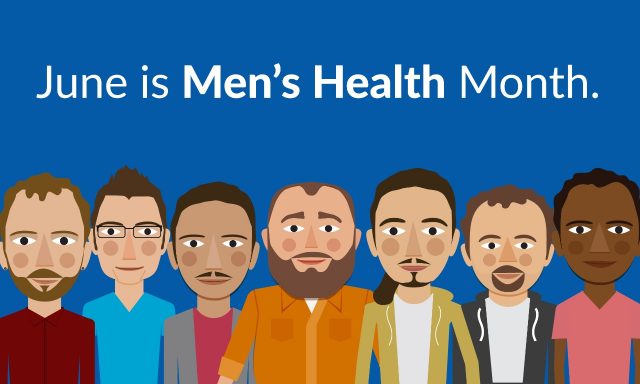
CHILLICOTHE, OH — June 3, 2025 — As June marks the arrival of Pride Month, it is also an important time to recognize another vital cause: Men’s Mental Health Awareness Month. While the two observances are distinct, they often go hand in hand—especially as they both highlight the importance of inclusion, visibility, and emotional well-being.
Throughout the month, local organizations like The Center are joining nationwide efforts to spotlight the unique mental health challenges faced by men and the urgent need to break the stigma that prevents many from seeking help.
According to the National Institute of Mental Health, just 40% of men with a diagnosed mental illness receive treatment—compared to 52% of women. This disparity is often rooted in societal norms that pressure men to appear strong, self-reliant, and emotionally detached leaving men untreated.
“These cultural expectations create a harmful silence,” The Center shared in a statement. “Many men feel isolated or ashamed to speak up, even when they are suffering.”
The consequences of this stigma are stark. Men are significantly more likely to suffer from substance abuse and depression—two of the most persistent and under-addressed mental health issues. Roughly 20% of men in the U.S. struggle with alcohol abuse during their lifetime, and approximately 6 million men experience depression each year. The result? Men die by suicide at rates four times higher than women.
Certain populations are particularly vulnerable: veterans, gay and bisexual men, minority groups, and men experiencing homelessness. National data show that men make up 60% of the homeless population, with many facing chronic isolation and a lack of support systems.
Men are also more likely to misuse substances like marijuana and illicit drugs, and while depression is common, it’s often misdiagnosed—or missed entirely. Warning signs, according to Families for Depression Awareness, include withdrawal from loved ones, increased irritability, substance abuse, trouble concentrating, and expressing feelings of hopelessness or detachment.
Mental health experts urge anyone noticing these signs in themselves or someone they love to seek professional help. Online tools like Heads Up Guys offer free self-checks for depression and resources to connect men with the care they need.
“Everyone faces challenges that test our mental health,” The Center added. “It’s not a weakness to speak up—it’s strength.”
As we celebrate inclusion and support in all forms this June, let’s not forget to stand with the men in our lives and encourage open conversations about mental health.










